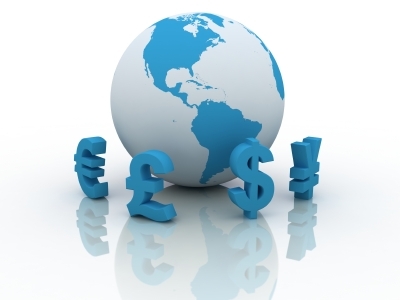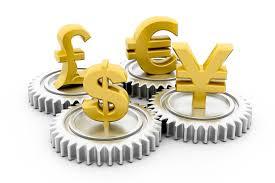Recently, the value of the U.S. dollar has risen from strength to strength against a basket of currencies, notably against the euro and the yen. In fact, the dollar has reveled in the longest streak of gains since 1971.
While the strong U.S. dollar is good news for American consumers who can get more bang for their bucks when buying some imported goods or traveling abroad to certain areas, like Europe or Japan, American multinational companies find themselves in a different boat, say experts from Wharton and elsewhere. For one thing, their overseas earnings are worth a lot less when they translate unhedged profits into U.S. dollars.
This can have a big impact on U.S. firms when, for example, nearly 40 percent of total sales of S&P companies come from abroad. In the long run, however, the higher dollar is a mixed bag of pros and cons for U.S. global companies.
How exactly the strong American currency will play out is hard to predict. In just the past year, the dollar has climbed an average of 18 percent and is now higher than it's been in more than a decade against major currencies. "People are freaking out about the strong U.S. dollar but in fact it's been much stronger before," says Jeremy Cook, chief economist at World First, a currency house in London. "In 1985, it was 33 percent stronger than where it is now so there is a lot more room to rally."
"The reason the U.S. dollar is strong is not so much what the Americans are doing but rather what the Europeans are doing with quantitative easing," adds Mauro Guillén, Wharton management professor and director of The Lauder Institute. As the European Central Bank's bond-buying program takes off in Europe, the dollar should continue to gain in value over the euro. The dollar is already worth over 30 percent more than last year against the euro, making Parisian vacations a lot more affordable. Trip Advisor reported a nine percent drop in European hotel prices in dollar terms. "Industries that have to do with tourism will benefit, including companies that take American tourists abroad," says Guillén.
"Companies were caught out a little bit, but what has been bad for American companies has been good for European companies." -- Joao F. Gomes
Undoubtedly, the news is better for European companies than American ones as the former are now able to price products more competitively against American goods. It is already had a huge impact on growth in the eurozone, notes Joao F. Gomes, Wharton finance professor. U.S. importers of foreign-made goods like French wines and German appliances might "experience a windfall" as their products become cheaper, adds Guillén.
The Japanese yen, meanwhile, has slid by 40 percent since early 2012 in part due to extreme quantitative easing, part of Abenomics, Prime Minister Shinzo Abe's monetary and fiscal stimulation efforts to escape decades of slow economic growth and deflation. This has put pressure on China -- which is experiencing its slowest growth in 24 years -- to defend itself in Asia's currency wars. "There is speculation that the People's Bank of China will increase policy stimulus this year in the face of slowing growth," which in turn will weaken the yuan, says Jane Foley, senior currency strategist at Rabobank International in London.
To continue reading my article, go to Knowledge@Wharton.

